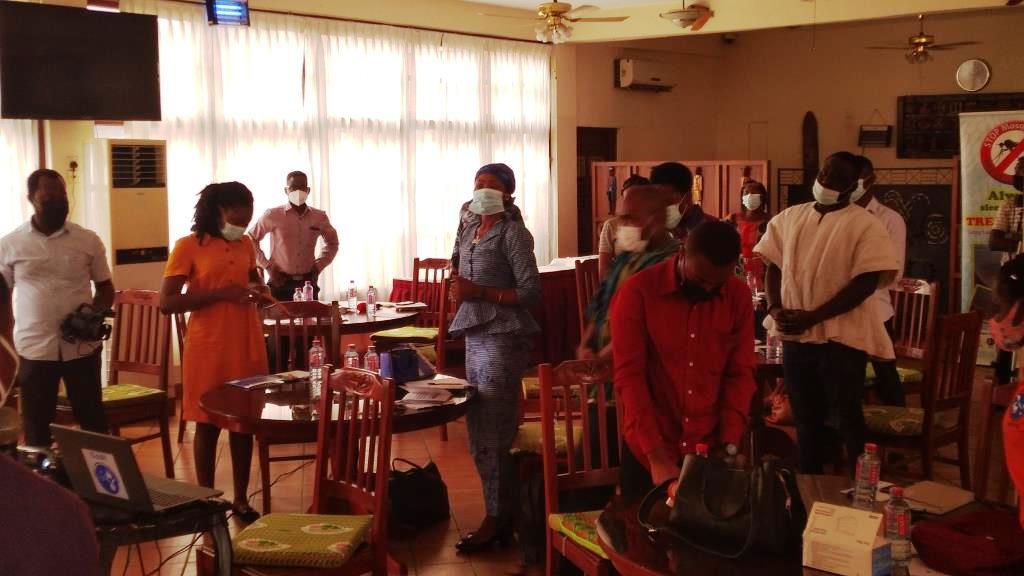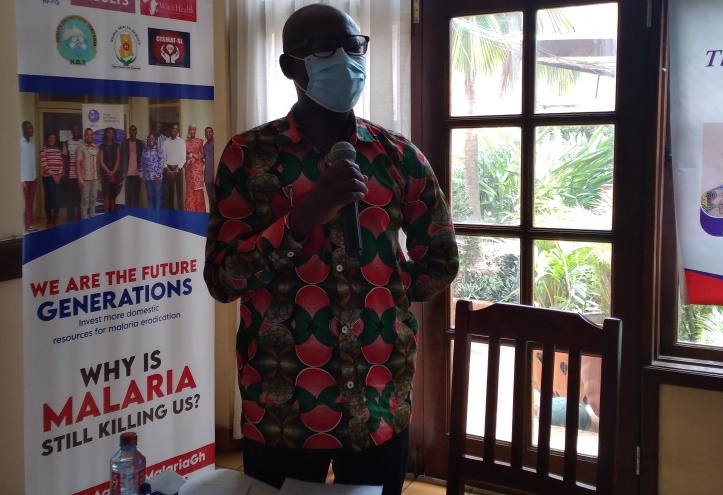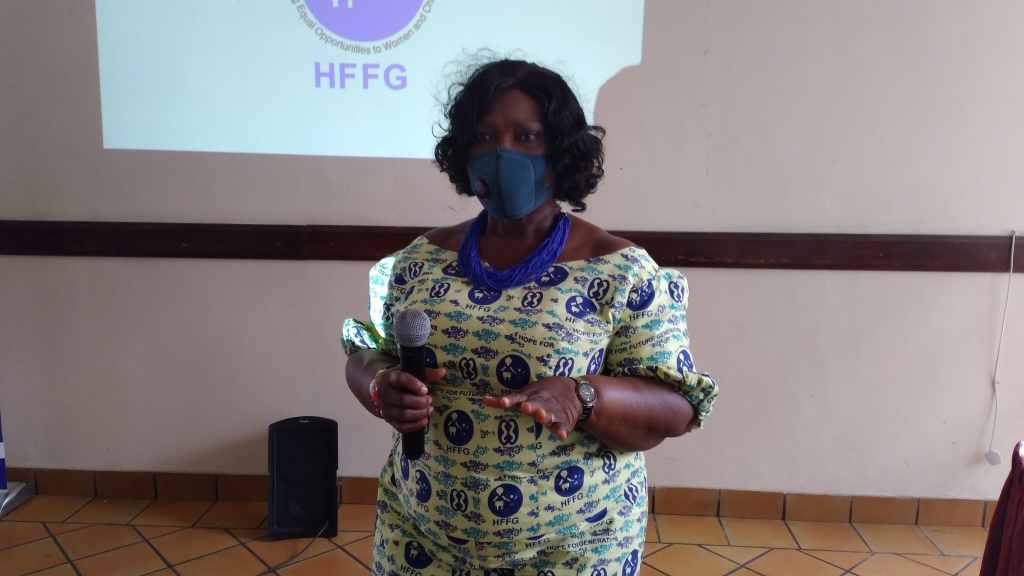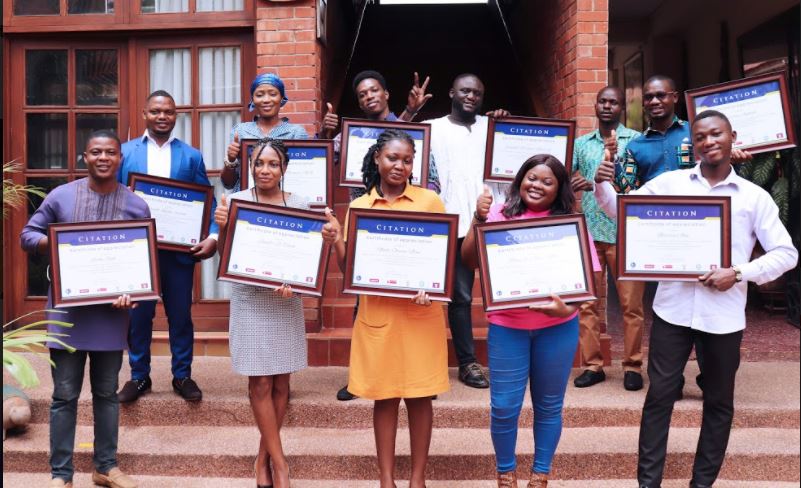Gov’t entreated to increase malaria funding as youth advocacy intensifies
Health authorities have tasked 11 youth advocates to champion malaria fight with a call for increased government funding to eradicate the disease.
Some of the advocates had near-death experiences after suffering from malaria, with others witnessing bad handling of cases in the past.

This young generation of advocates serves as torchbearers for the anti-malaria campaign in their localities to complement health institutions’ efforts.
They were part of the Youth Leaders for Health (YL4H), who underwent a comprehensive advocacy training programme in Ethiopia to equip them for the anti-malaria campaign.
The volunteers are Naana Adiki Manyeyo Adi I, Delight Kwame Siameh, Lucky Soglo, Iddrisu Aliu, Rhoda Owusu Ntim, Jennifer El-Duah, Esmond Wedam Nonterah, Ahmed Uzairu, Michael Aggrey-Korsah Jr, Augustine Kumah and Priscilla Ama Addo.
Among other things, they are to contribute to eliminating malaria and strengthening health systems with the ultimate goal of curbing malaria.
Malaria is one of the biggest perennial health concerns that claims millions of lives, with billions of dollars spent tackling the menace.
Why the need for intensified malaria campaigns
WHO reports that Ghana and Nigeria recorded the highest malaria cases in 2018 out of the 10 highest-burden countries in Africa.
In 2019, Africa was home to 94% of global malaria cases and deaths, highlighting how the continent was lagging in tackling the mosquito-causing disease.
There were an estimated 229 million cases of malaria worldwide, with 409,000 deaths.
Children aged under 5 years were the most vulnerable as they accounted for 67% (274 000) of all malaria deaths worldwide.
This translates into a daily toll of nearly 750 children under age 5.
More worrying is the death of a child under five every two minutes, especially in Sub-Saharan Africa.
READ ALSO: The Uncertain But Rewarding Journey Of Health Advocacy
Total funding for malaria control and elimination reached an estimated US$ 3 billion in 2019.
Worse of it is the meagre contribution of US$ 900 million, representing 31% of total funding from governments of endemic countries.
One of the reasons for the malaria programme is to push the agenda of increased domestic funding by 20% in Ghana.
Investing in malaria eradication
The theme permeating the speeches by officials at the close-out ceremony of the group in Accra on Wednesday, March 24, was joint efforts by stakeholders against malaria.
The event marked the beginning of the work of the Youth Leaders for Health across the country.
The Deputy Director-General of the Ghana Health Service (GHS), Dr Anthony Adofo-Ofosu, commended participants.

He was hopeful that the youth would employ all they learnt towards the eradication of malaria in Ghana.
He advised them to preserve the network of contacts they had established to make their work easier.
According to him, the government was committed to tackling malaria, and more support would be provided to address the impact of the disease.
On the sidelines, he told theghanareport.com that Ghana’s quest for a malaria vaccine was on course with positive results from clinical trials.
For her part, the Executive Director of Hope for Future Generations (HFFG), Mrs Cecilia Lodonu-Senoo, highlighted the inefficiencies in diagnosing and treating malaria.

HFFG is the local implementing partners for the programme.
Mrs Lodonu-Senoo advised the government to increase resources towards healthcare delivery and education to reduce malaria-related deaths.
In a solidarity message, Campaigns Manager for RESULTS UK Pushpanath Krishnamurthy noted it was a time for the volunteers to open out even though it was a closing-out ceremony.
READ ALSO: COVID -19: Using My Voice As A Health Advocate
He wants them to do their best to reach out across the country to achieve zero malaria deaths.
Participants shared their experiences and initiatives they had implemented even though the COVID-19 pandemic disrupted their plans.
Towards the 2020 elections in Ghana, they reached out to the two major political parties’ leaders to include malaria and other health targeted policies in their manifestos.

They also embarked on sanitation campaigns and education on COVID-19 prevention measures as the pandemic raged on.
Additionally, the volunteers embarked on training second-generation youth leaders by passing on knowledge and skills to others.
Media engagement and door-to-door awareness creation have been integral in their activities.
Youth Leaders for Health programme
The Youth Leaders for Health (YL4H) is a joint programme by WACI Health, RESULTS UK, Health Promotion Tanzania-HDT, Hope for Future Generation (HFFG) – Ghana, and CISMAT- Sierra Leone with support from Comic Relief, UK.
It is a one-year leadership development initiative implemented in 2019.
A total of 25 youth advocates from Ghana, Sierra Leone, and Tanzania, with a passion for healthcare strengthening, participated in the programme.
READ ALSO: African Leaders And Advocates, When You Think COVID-19, Think Malaria!
The purpose is to advocate for policy change at key national, regional and global levels.
The aim is to influence decision-makers during a range of pivotal moments such as national elections, the Commonwealth Heads of Government Meeting and World Malaria Day towards ending the malaria epidemic, achieving universal health coverage (UHC), and creating lasting impact.
You might also be interested in:
- The Power Of Advocacy – Curtailing Rising Malaria Cases In Cape Coast, Ghana
- Youth Leaders For Health Call On African Leaders To Invest In The Youth
- Why The Health Sector Must Be Revamped
- Life In Navrongo Through The Lens Of A Youth Leader For Health
- My Role As A Youth Advocate In Combating COVID-19



